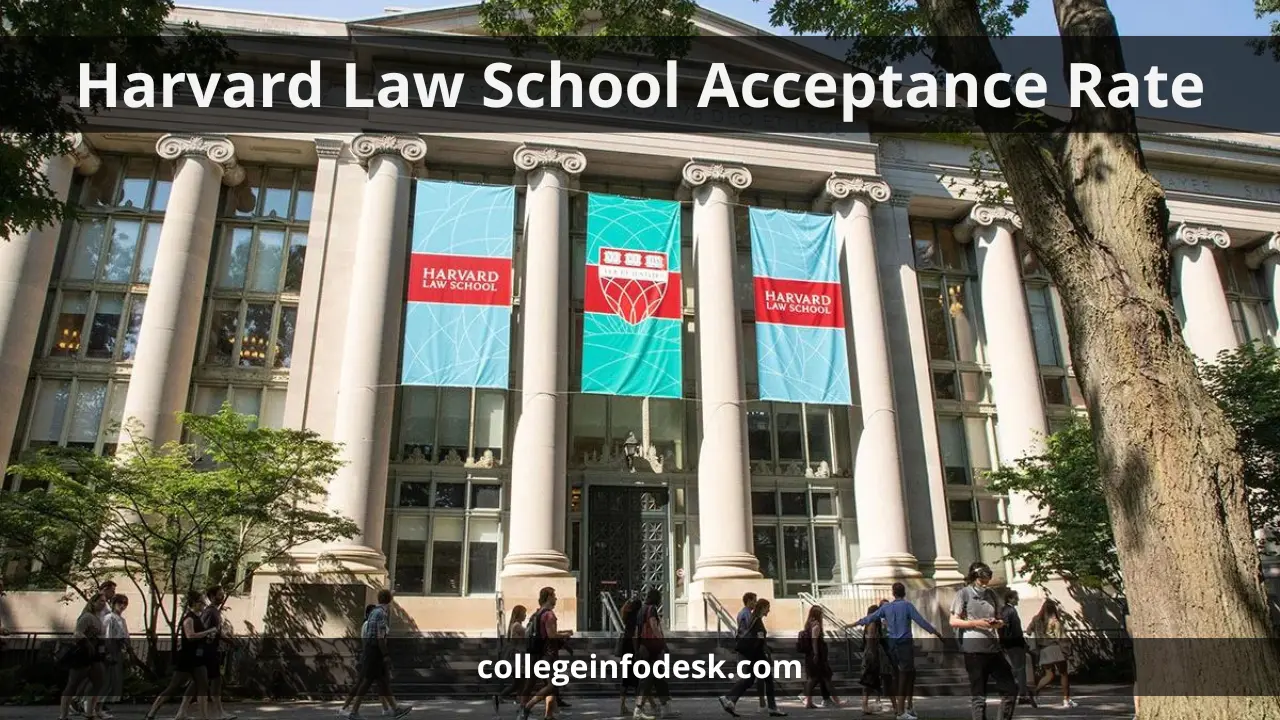Harvard Law School, an iconic institution renowned for producing top legal professionals, stands as a beacon for aspiring lawyers worldwide. In this extensive guide, we will delve deep into the intricate details of the admission process, explore the myriad programs offered, and provide practical insights to maximize your chances of securing a coveted spot at Harvard Law School.
Understanding the Harvard Law Landscape
1. Programs at a Glance
Harvard Law School offers a spectrum of programs catering to the diverse needs of students. The J.D. class of 2024 witnessed a staggering 9,993 applicants, emphasizing the competitiveness of admissions with a mere 7% acceptance rate.
2. Programs Offered and Ranking
Boasting a curriculum of over 260 courses, Harvard Law School covers a wide array of traditional and emerging legal fields. It holds a prominent position in the legal education landscape, particularly excelling in Corporate Law, Constitutional Law, and Dispute Resolution programs.
3. Harvard Law School Acceptance Rate Trends
To comprehend the competitive nature of Harvard Law School admissions, let’s delve into recent acceptance rate trends:
| Year | Number of Applicants | Accepted Students | Acceptance Rate |
| 2023 | 9,993 | 685 | 7% |
| 2022 | 8,170 | 822 | 10.1% |
| 2021 | 9,933 | 685 | 6.9% |
| 2020 | 7,448 | 968 | 13% |
Unpacking the Admissions Process
1. Admission Deadlines
Understanding the specific deadlines for each program is crucial. For instance, the J.D. program deadline is March 1, 2023, whereas the LL.M. program deadline is December 1, 2022, and the S.J.D. program deadline is April 1, 2023.
2. Application Process
The application process involves submitting your application through the LSAC portal along with an $85 fee. Ensure that all transcripts and supporting documents are translated into English.
3. Admission Requirements
For J.D. applicants, a competitive GPA of 3.92 and an LSAT score of 170 or higher are considered essential. International students must showcase proficiency in English with a TOEFL iBT score of 100 or equivalent.
4. Graduate Admissions
Graduate programs, particularly LL.M., have specific requirements, including a 25-page paper. Proficiency in English, demonstrated through TOEFL iBT (100), IELTS (7.5), or PTE (75), is a key criterion.
You may also be interested in:
- Yale Acceptance Rate: Strategies and Insights for Admission Success
- UCLA Nursing Acceptance Rate: Strategies and Insights for Admission
Crafting Your Application
1. Personal Statements and Essays
Crafting a compelling personal statement is pivotal. Use this opportunity to showcase unique experiences and motivations that set you apart. The essay should add depth and context not visible in your resume.
2. Letters of Recommendation
Submitting 2-3 letters, preferably from academic references, is crucial. These letters should highlight your capacity to excel in a rigorous academic setting.
3. Interview Insights
Prepare thoroughly for interviews conducted over Zoom. Expect questions like “Why Harvard Law School?” and “Why now?”
Financial Considerations
1. Tuition and Expenses
Understanding the financial commitment is essential. Annual tuition is $75,008, and additional expenses bring the total to $111,000. Financial aid primarily comes in the form of grants and loans.
2. Scholarships
While Harvard Law School primarily offers financial aid through grants and loans, exploring external scholarship opportunities is advisable.
Harvard Law School: Beyond Admissions
1. Academic Excellence
Harvard Law School’s reputation for academic excellence is grounded in its distinguished faculty, comprehensive curriculum, and a commitment to fostering critical legal thinking.
2. Clinical and Experiential Learning
Harvard Law places a strong emphasis on experiential learning. Clinical programs and externships provide students with real-world exposure and a chance to apply theoretical knowledge.
3. Research Opportunities
The vast array of research centers and initiatives at Harvard Law School allows students to engage in cutting-edge legal research, contributing to the broader legal discourse.
4. Global Perspective
Harvard Law School’s commitment to a global perspective is evident in its international programs, allowing students to explore legal issues on a global scale.
Final Tips for Success
1. Focus on Yourself in Personal Statements
Make the personal statement about you. Emphasize what makes you unique and aligns with Harvard Law School’s values.
2. Maintain a Rigorous Course load
Don’t compromise academic rigor for a higher GPA. Admissions appreciates candidates who challenge themselves with upper-level or challenging courses.
3. Avoid Unnecessary Test Retakes
Strategically plan standardized tests. Evaluate whether a marginal score increase is worth the time and effort on test prep.
4. Simplify Your Resume
Keep your resume straightforward. Avoid unnecessary details and consider adding a “personal” or “interests” section to humanize your application.
Frequently Asked Questions
- What GPA Do I Need for Harvard Law? Aim for a competitive GPA of 3.94 or higher to enhance your application.
- How Difficult Is It to Get Into Harvard Law? Harvard Law is highly competitive, with an acceptance rate of around 7%. A stellar application is crucial.
- What Does Harvard Law Look For? A strong academic record, top test scores, and substantial accomplishments are vital. Non-academic factors like work experience, leadership, and intangible qualities are also considered.
- Does Harvard Law Look at All Four Years? Yes, the admissions committee evaluates your entire undergraduate performance.
- Should I Submit LSAT or GRE Scores to Harvard Law? Both are accepted; choose strategically based on your strengths and preferences.
Conclusion
Securing admission to Harvard Law School is undoubtedly challenging, but with meticulous preparation and a compelling application, it’s an achievable goal. Remember, if Harvard doesn’t work out, there are many other excellent law schools that can pave the way for a successful legal career. Best of luck on your journey to becoming a Harvard Law student!
